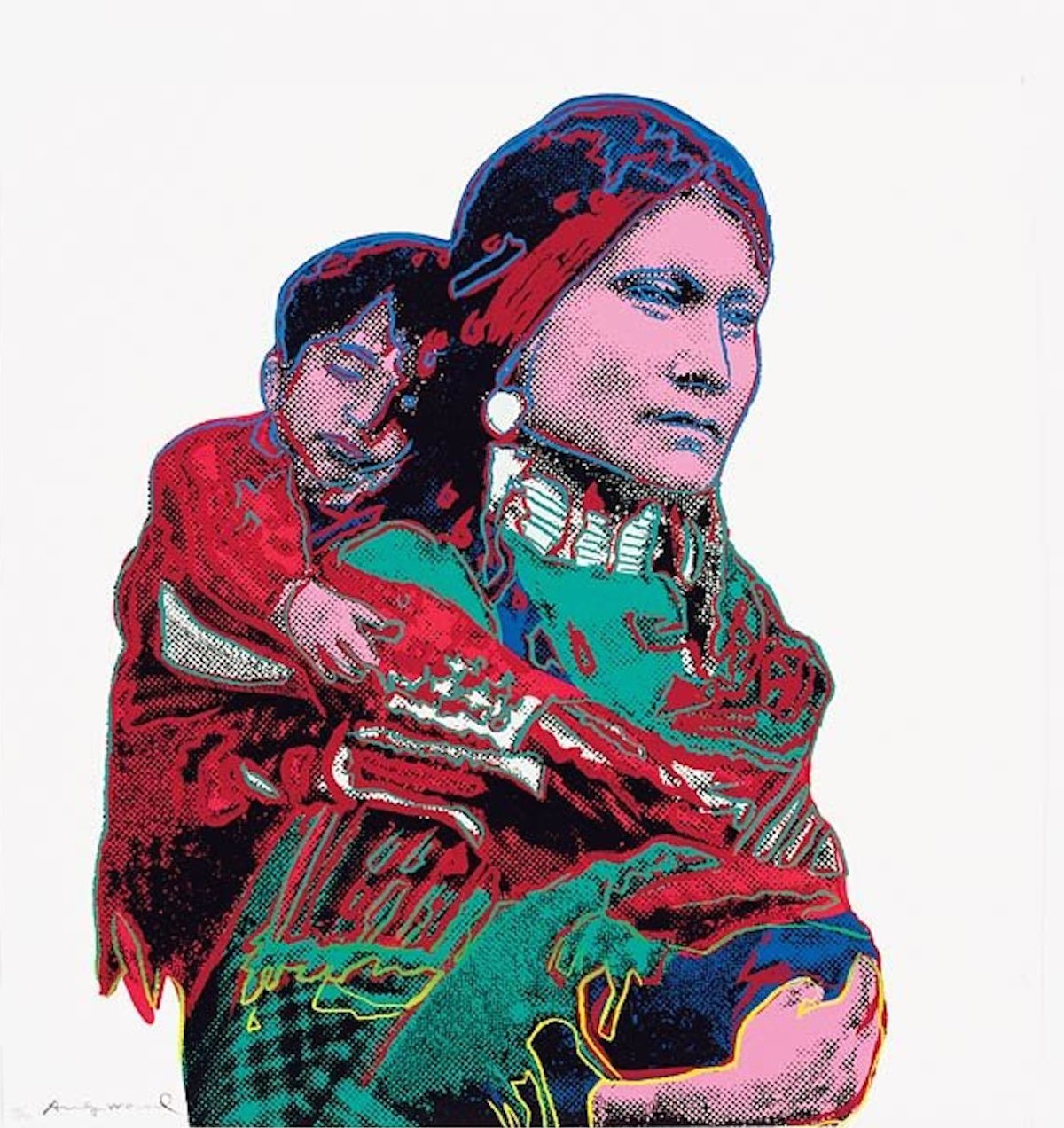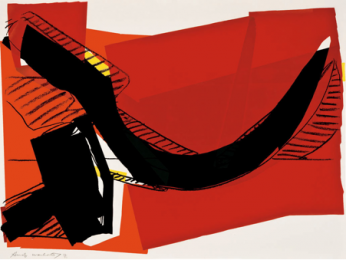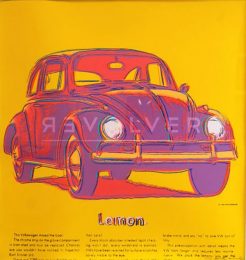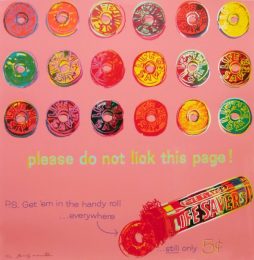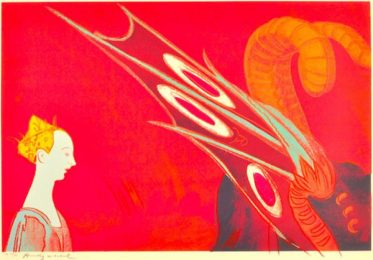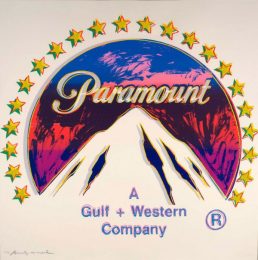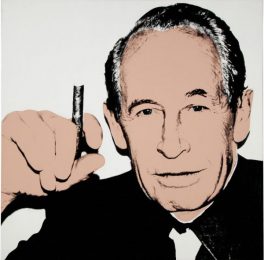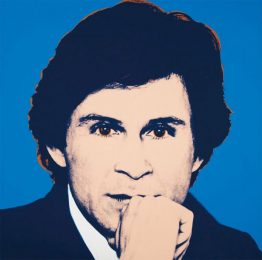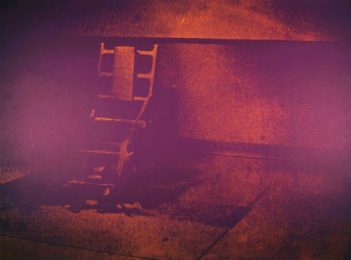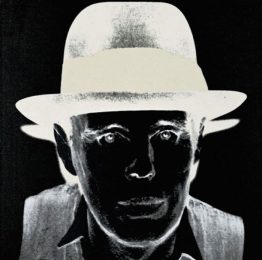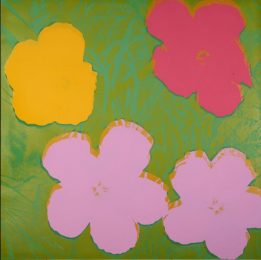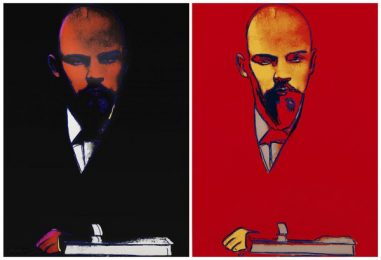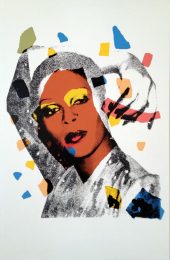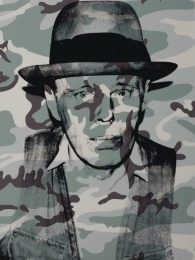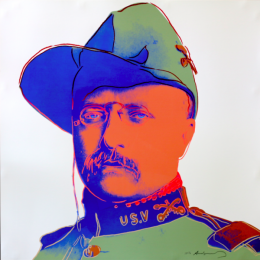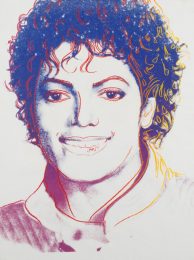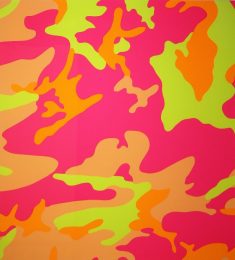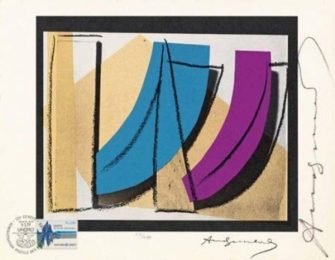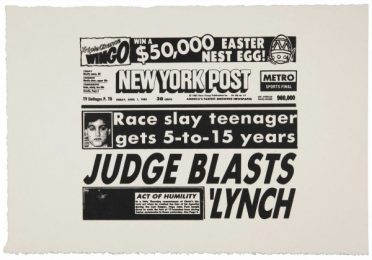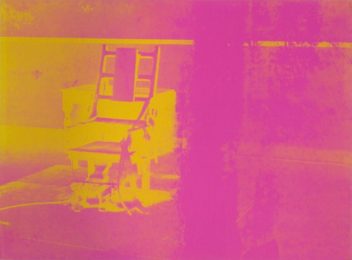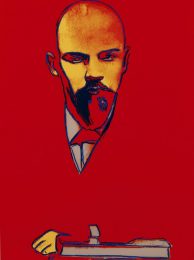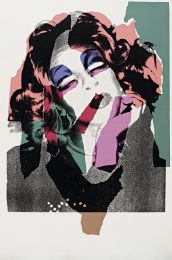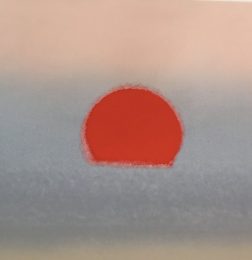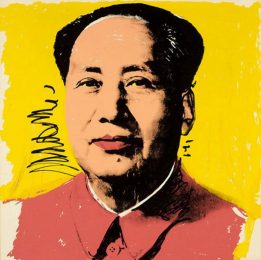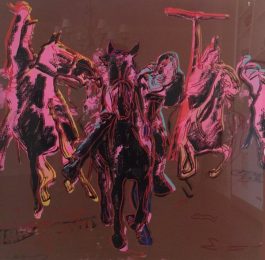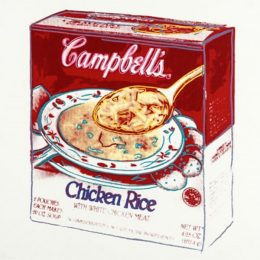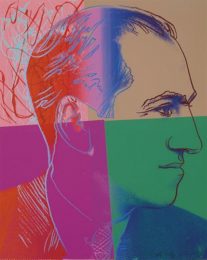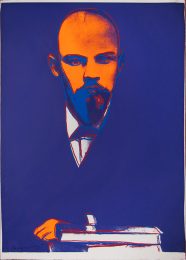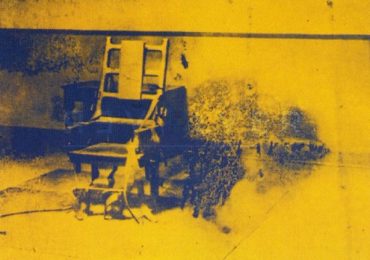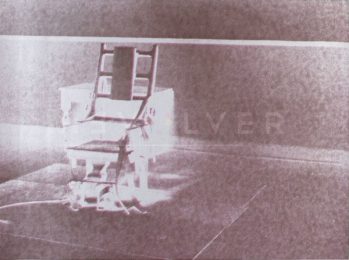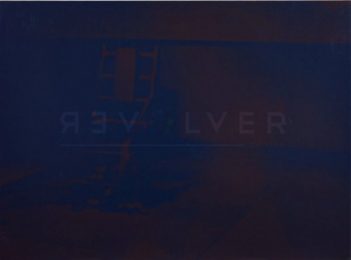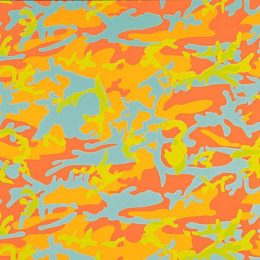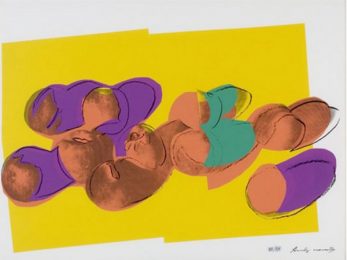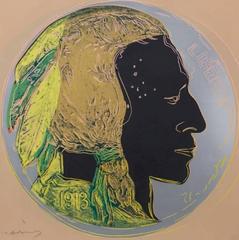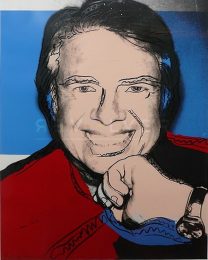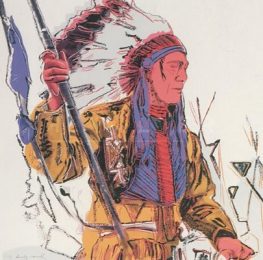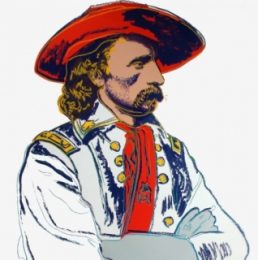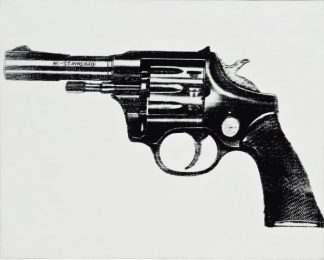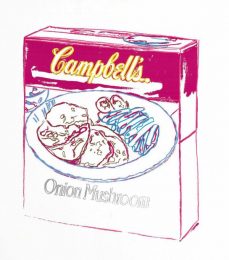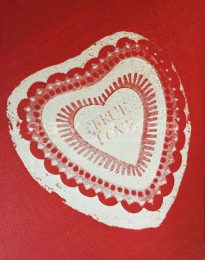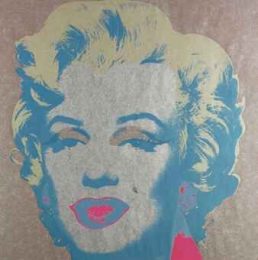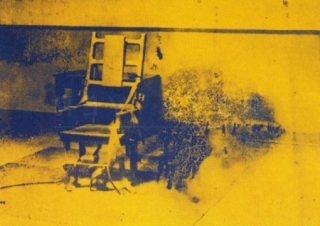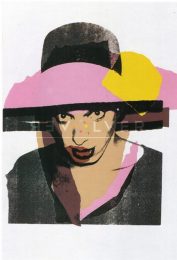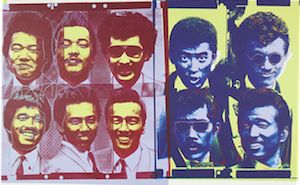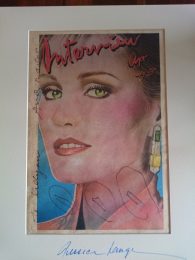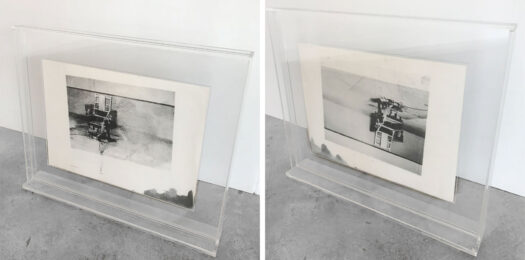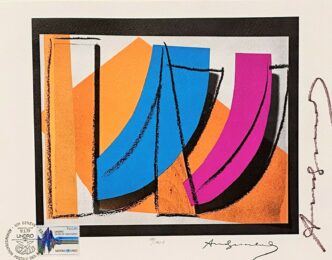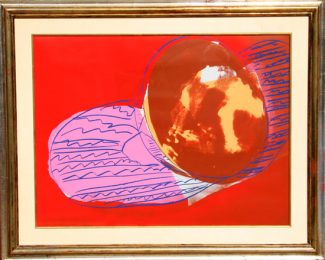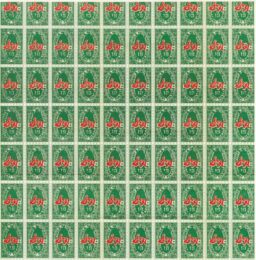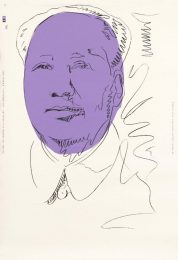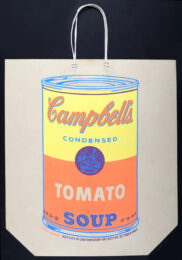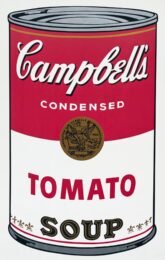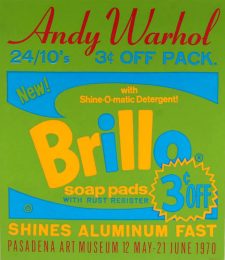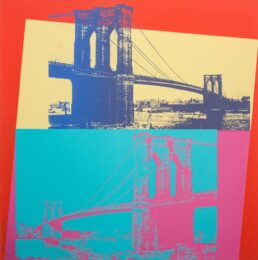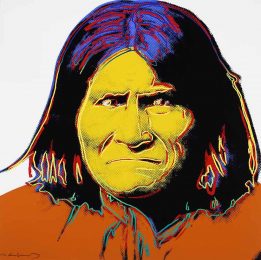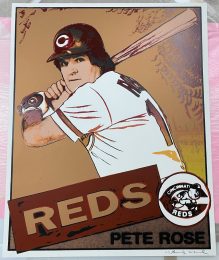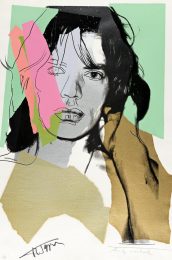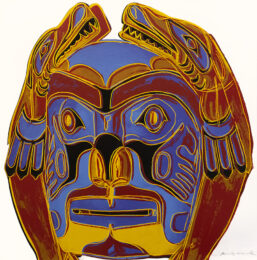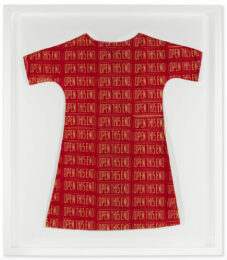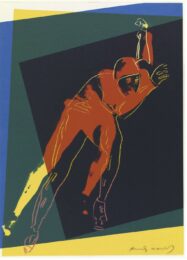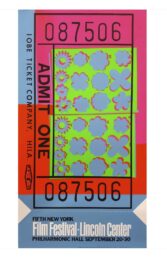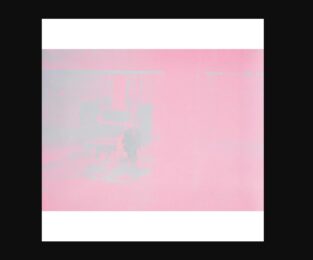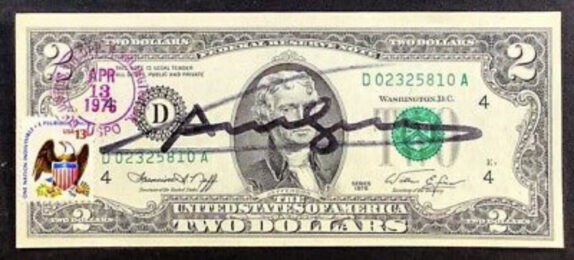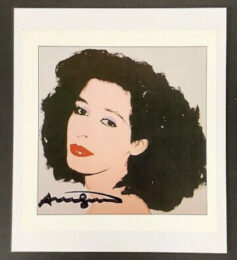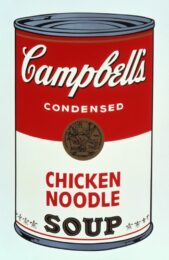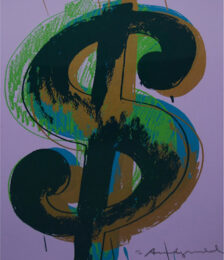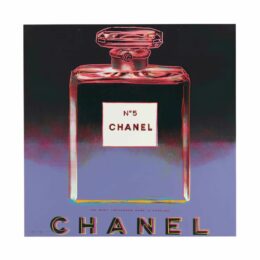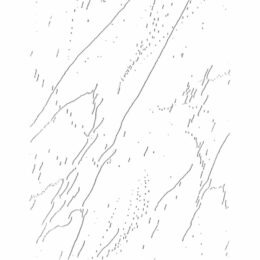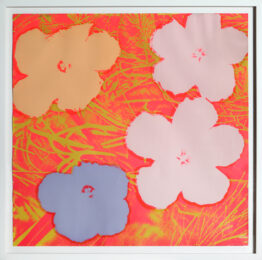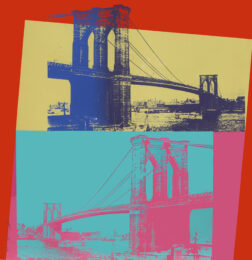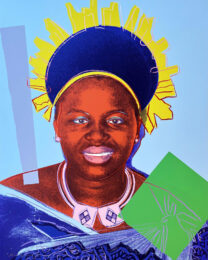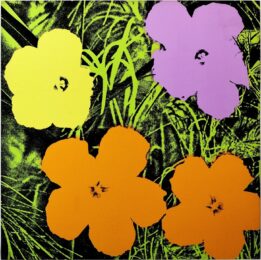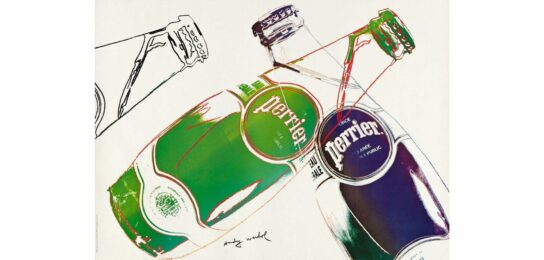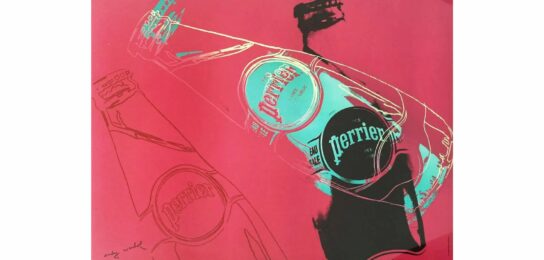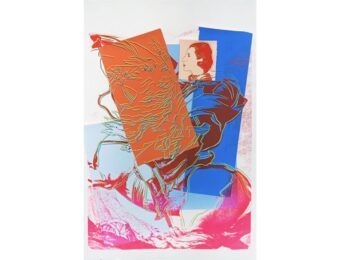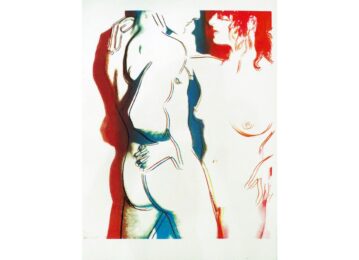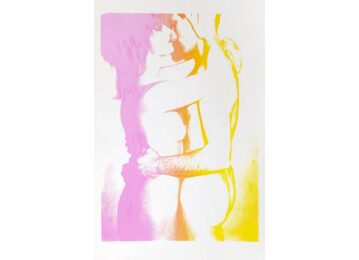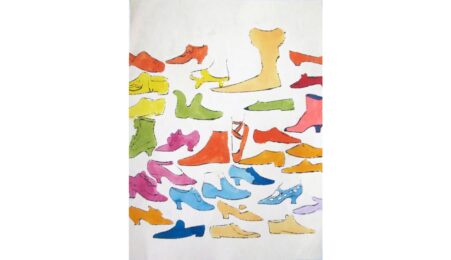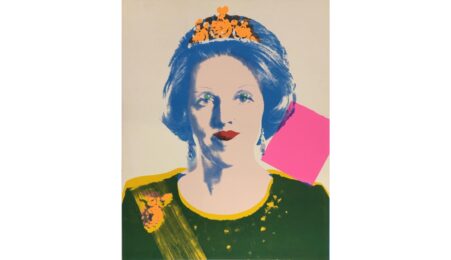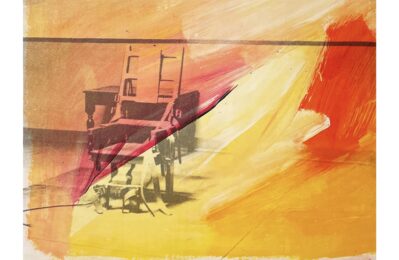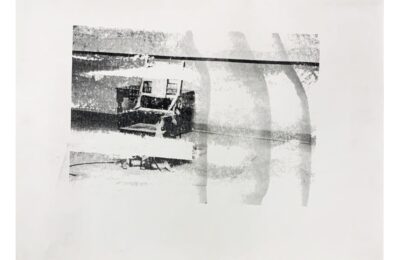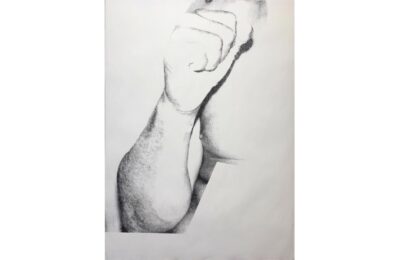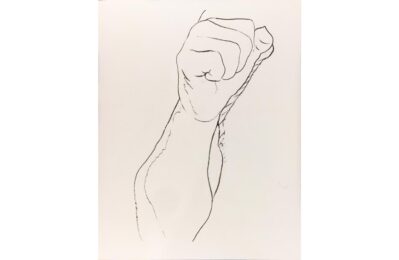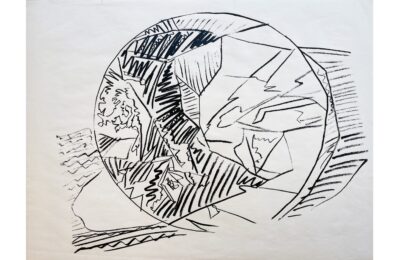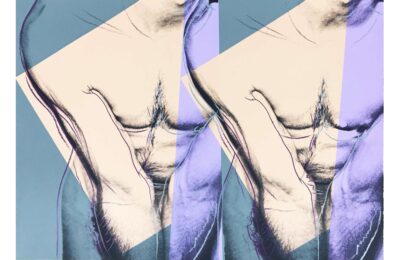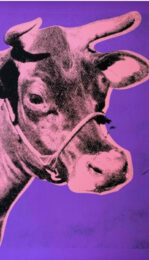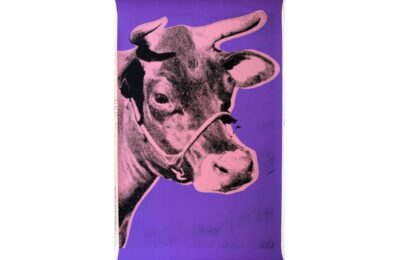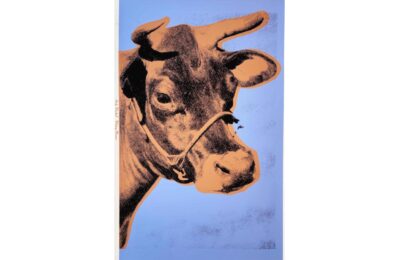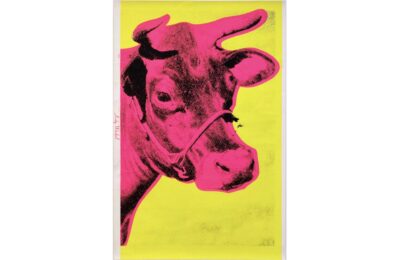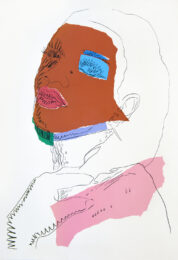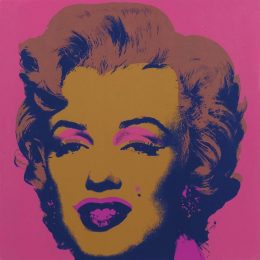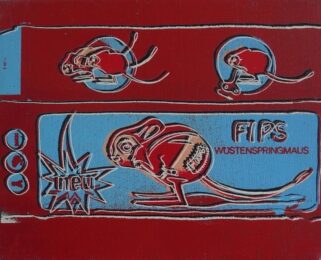Details — Click to read
Mother and Child 383 by Andy Warhol is a screen print portrait depicting an anonymous Native American mother with her child asleep against her back. Mother and Child 383 is part of Warhol’s 10-piece Cowboys and Indians portfolio, representing figures and objects related to the Wild West. Cowboys and Indians explores a romanticized “Old American West” through fragmented depictions of Native Americans, Cowboys, and heroes of the American Frontier.
Mother and Child 383 portrays an indigenous mother with her child innocently asleep on her back, cheek resting against the crux of her neck. Their amaranth skin pops against the stark white background; the fabrics of their clothes also stand out while maintaining an earthy and naturalistic style; Warhol accents semi-precious turquoise and cherry red fabric with sketched outlines of yellow and patches of blue. The red and blue also add a reflective highlight on the family’s jet black hair, but it comes from a nonexistent light source. What appears to be a white earring and necklace defines the mother’s square chiseled jawline while whites brighten the topmost layer of her fabric. Overall the image appears pixelated, inciting a potential association between the indigenous family and the media’s warped interpretation of their identity.
Warhol perfects texture in Mother and Child 383. Black shading defines the different layers of intricately woven and fringed fabrics. It adds incredible depth that is sometimes minimal in Warhol’s other portraits.
Andy Warhol always loved Westerns since childhood. Devising enough money, he would watch Old Western films at the cinema and eventually directed two of them himself. He was in the majority with many Americans, who loved how Westerns provided gun slinging excitement and patriotism for the country. This portfolio is yet another one of his tributes to the Old West and its role in pop culture, though unlike the formulaic storyline of Western films, he explores common interpretations of this side of American history.
Mother and Child 383 is vague and purposefully so. Without a contextual background, Mother and Child 383 identifies a partial abstraction of their history by modern mass media and pop culture. This gap was often filled with Western bias and a romanticized nationalist influence, which other works in the series—like General Custer 379 and Teddy Roosevelt 386—embody. They are supposed heroes of the Old West, though they had known hostility against Native Americans. Warhol’s succinct but loving depiction between the Indigenous mother and child further comments on an incongruous viewpoint of America’s past.
Warhol claimed that series such as Cowboys and Indians were done with emotional neutrality. “If you want to know all about Andy Warhol, just look at the surface of my paintings and films and me, and there I am. There’s nothing behind it.” People may disagree with this blaise overtone, but Warhol’s self-commentary was never that straightforward.
Mother and Child 383 is one of the most profound works in Cowboys and Indians. With it’s anonymity, fragmentation from person and place, and textural nuances, Warhol illuminates the impacts of pop culture on our interpretation of historical events. Overall, the series is a masterful display of Warhol’s use of Pop Art to decontextualize images and symbols, effectively presenting them in a way that confronts the audience with their own preconceived notions of such subjects.

